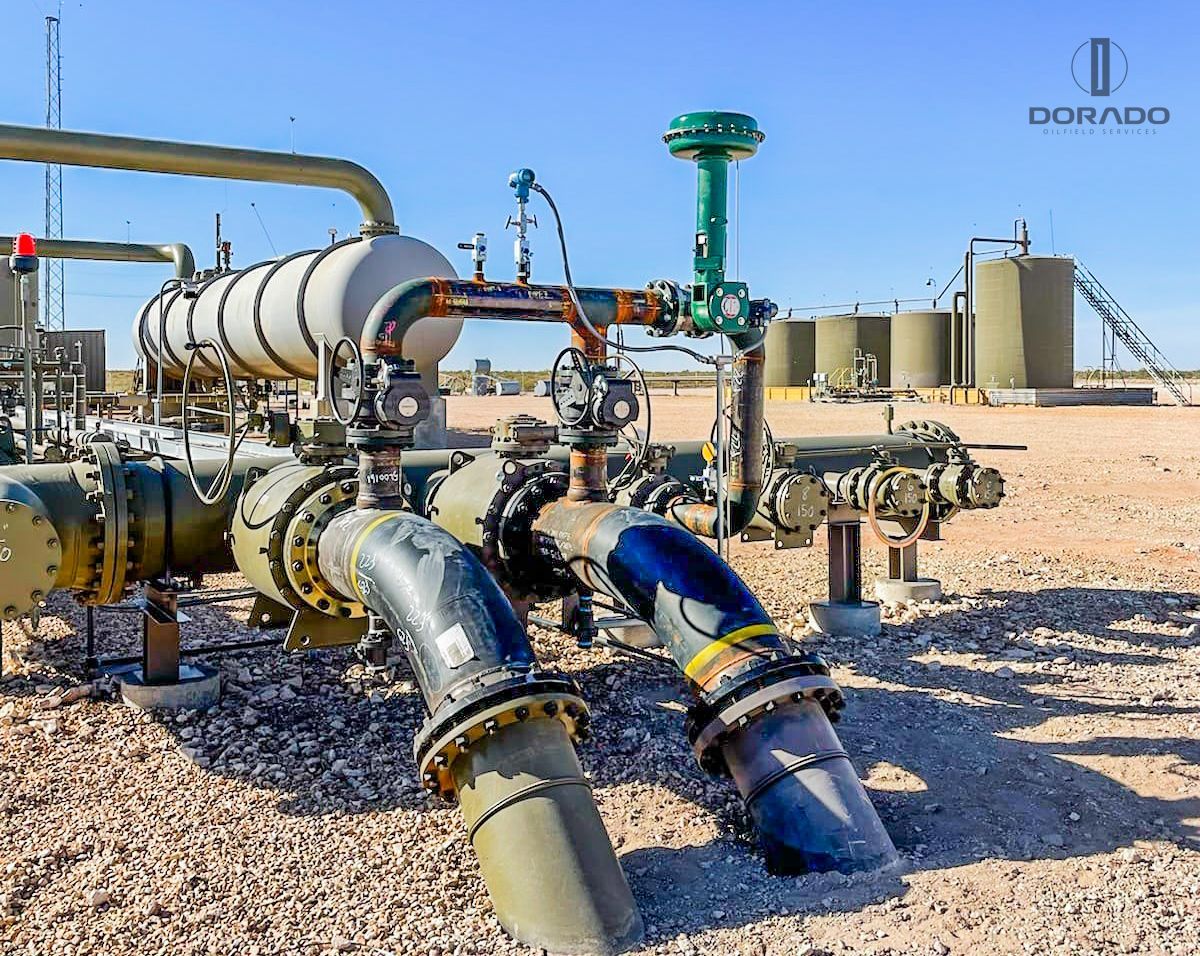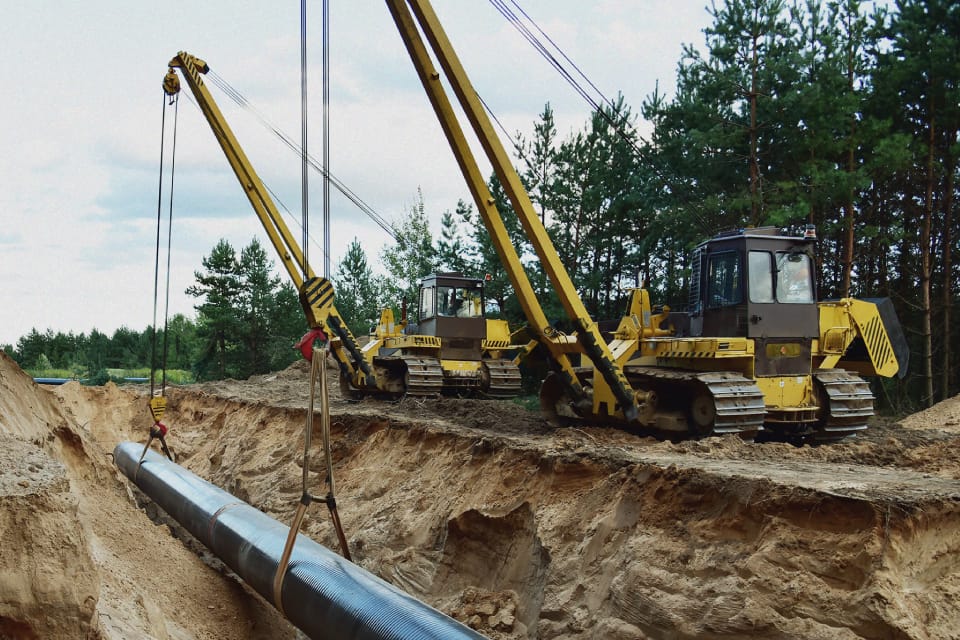How to Compare Pipeline Construction Services Bids Like a Pro
Wiki Article
The Important Guide to Understanding Pipeline Construction Services and Their Relevance
Pipeline Construction solutions are essential to the transport of crucial sources such as oil, gas, and water. These solutions include precise planning and execution, sticking to rigorous security and environmental standards. As the industry adapts to modern-day difficulties, comprehending its components and effects becomes significantly vital. What aspects add to the expanding value of these services in today's economy? The complying with sections will discover these vital aspects.Review of Pipeline Construction Services
Pipeline Construction services incorporate a variety of activities necessary for the installation and upkeep of pipes utilized to deliver various compounds, including oil, water, and gas. These services are important for guaranteeing the risk-free and reliable motion of resources from one place to one more. The process generally starts with comprehensive preparation and design, which takes right into account governing demands, environmental factors to consider, and logistical challenges.Excavation and grading of the land are carried out to prepare the website for Pipeline installment once planning is full. This is followed by the actual laying of the pipes, which includes welding or signing up with areas with each other to create a constant circulation course. After installment, extensive testing is done to ensure stability and safety and security. Maintenance services are likewise supplied to attend to any problems that may develop gradually. On the whole, Pipeline Construction solutions play a pivotal role in supporting infrastructure for energy and water distribution.
Trick Components of Pipeline Construction
A successful Pipeline Construction task relies upon a number of vital components that assure the risk-free and reliable installment of the Pipeline system. Initially, comprehensive site analyses are crucial, as they identify the environmental and geographical variables that might influence Construction. Next off, the choice of proper products, such as pipes and fittings, is important for securing sturdiness and compatibility with the delivered compounds.Progressed Construction methods, including trenchless modern technology and directional exploration, enhance effectiveness and reduce environmental effect. Reliable task monitoring is an additional crucial component, working with labor, equipment, and timelines to fulfill job objectives.
Furthermore, interaction among stakeholders, consisting of engineers, professionals, and local authorities, assurances alignment on job specifications and needs. Lastly, comprehensive quality assurance steps throughout the Construction procedure ensure conformity with industry requirements and make best use of the Pipeline's operational life expectancy. Jointly, these parts form the foundation of an effective Pipeline Construction job.
Safety And Security Criteria and Laws in Pipeline Construction

Regulative bodies, such as the Occupational Safety And Security and Wellness Management (OSHA) and the Pipeline and Hazardous Products Security Management (PHMSA), set forth particular requirements that regulate Construction practices. These consist of protocols for tools usage, worker training, and emergency reaction treatments. By executing these criteria, Construction companies not just protect their staff members yet also safe public trust fund. Ultimately, strenuous safety and security steps add to the lasting success of Pipeline projects, guaranteeing they meet both environmental and functional assumptions.
Environmental Considerations in Pipeline Projects

Environmental considerations are important to the planning and implementation of Pipeline jobs. These jobs have to assess potential effect on communities, water sources, and neighborhood wildlife. Performing detailed ecological impact evaluations (EIAs) is crucial, allowing stakeholders to identify and mitigate dangers before Construction starts.
Shielding delicate areas, such as environments and wetlands, often calls for applying particular design attributes or alternative directing to decrease disruption. Furthermore, Pipeline operators are charged with developing methods for protecting against spills and leaks, which can have damaging effects on the environment.
Interaction with neighborhood areas is important, as public concerns can cause task alterations that improve environmental management. Compliance with guidelines established by ecological companies ensures that projects fulfill sustainability standards, cultivating a balance in between framework requirements and eco-friendly conservation. Inevitably, dealing with environmental considerations not only safeguards nature but likewise advertises area trust fund and job practicality.
The Duty of Technology in Pipeline Construction
Technology plays a crucial function in modern Pipeline Construction, improving effectiveness and accuracy. Advanced checking methods permit for specific preparation and implementation, reducing ecological influence and task delays. In addition, the integration of automation and helpful resources robotics simplifies procedures, minimizing labor costs and boosting security on Construction websites.Advanced Checking Strategies
Advanced evaluating methods play a vital role in the successful implementation of Pipeline Construction tasks. These approaches take advantage of advanced modern technology to guarantee exact mapping and evaluation of the surface where pipelines will be mounted. Methods such as Geographic Details Equipment (GIS), LiDAR (Light Detection and Ranging), and 3D modeling enable engineers to evaluate the landscape and envision, identifying possible obstacles and environmental worries. By utilizing these sophisticated devices, teams can improve accuracy in placing and alignment, greatly decreasing the threat of mistakes throughout Construction. Furthermore, real-time information collection enables prompt changes and educated decision-making throughout the task lifecycle. Inevitably, these evaluating developments add to enhanced efficiency, security, and sustainability in Pipeline Construction efforts.Automation and Robotics

Economic Influence of Pipeline Framework
Pipeline infrastructure plays a crucial duty in shaping regional economic situations and assisting in profession. By offering a reputable methods of carrying oil, gas, and other commodities, pipelines lower transportation prices and boost supply chain effectiveness. This framework brings in financial investment, stimulates job creation, and fosters financial development in surrounding locations.The Construction and upkeep of pipelines contribute considerably to neighborhood economies, producing many work chances in numerous markets, from engineering to labor. The increase of tasks typically leads to increased spending in regional organizations, even more reinforcing financial task.
Furthermore, pipes improve energy safety and security by making sure a secure supply of sources, which is vital for industrial operations and domestic demands. As areas end up being interconnected with Pipeline networks, over here they gain access to more comprehensive markets, boosting competition and financial durability. As a result, the financial impact of Pipeline facilities is multifaceted, influencing both prompt neighborhood economic situations and more comprehensive regional growth.
Future Trends in Pipeline Construction Providers
The future of Pipeline Construction solutions is evolving in response to technological developments, governing changes, and growing environmental considerations. Innovations such as robotics and drones are simplifying examination and maintenance procedures, improving security and performance. Automation is poised to decrease labor prices and increase accuracy in Construction operations. Additionally, the raising emphasis on sustainability is motivating firms to take on environmentally friendly materials and techniques, lining up with worldwide efforts to lower carbon impacts.Regulatory structures are also adapting to resolve environmental influences, pressing for greater openness and responsibility in Pipeline projects. In addition, the integration of wise technologies, including real-time surveillance systems, is expected to enhance the reliability and efficiency of Pipeline networks. As power needs shift towards sustainable sources, Pipeline Construction solutions will likely see a surge in tasks connected to biofuels and hydrogen transport. Generally, these fads suggest a transformative duration for the Pipeline sites Construction sector, concentrated on development and sustainability.
Often Asked Concerns
What Kinds of Pipelines Are Commonly Created?
Different types of pipes are commonly built, consisting of oil, sewage, water, and gas pipes - Pipeline Construction Services. Each serves unique objectives, facilitating the transport of necessary sources throughout areas while adhering to safety and environmental lawsHow much time Does a Regular Pipeline Project Take?
The period of a normal Pipeline task varies significantly, typically varying from several months to a few years. Elements influencing this timeline include task complexity, regulatory approvals, and ecological factors to consider that need to be attended to.That Regulates Pipeline Construction Companies?
Pipeline Construction firms are controlled by different federal, state, and local firms, including the Pipeline and Hazardous Materials Safety And Security Management (PHMSA) and state utility commissions, ensuring conformity with security and environmental standards throughout the Construction procedure.What Are Usual Products Used in Pipeline Construction?
Usual materials used in Pipeline Construction consist of pvc, steel, and polyethylene. Each material provides unique advantages such as resistance, toughness, and flexibility to deterioration, making them suitable for different applications in transferring gases and fluids.
How Are Pipeline Construction Expenses Estimated?
Pipeline Construction costs are estimated by evaluating elements such as material expenditures, labor prices, job intricacy, environmental considerations, and regulative requirements (Pipeline Construction Services). Accurate price evaluation assurances effective budgeting and task preparation throughout the Construction processPipeline Construction services incorporate a variety of activities vital for the installation and upkeep of pipelines utilized to transport various substances, consisting of oil, water, and gas. An effective Pipeline Construction project counts on a number of vital elements that assure the secure and effective installation of the Pipeline system. Advanced checking strategies play an essential function in the successful implementation of Pipeline Construction projects. Numerous types of pipes are generally built, consisting of oil, gas, sewage, and water pipelines. Pipeline Construction prices are estimated by assessing variables such as material expenditures, labor rates, project complexity, environmental factors to consider, and governing needs.
Report this wiki page